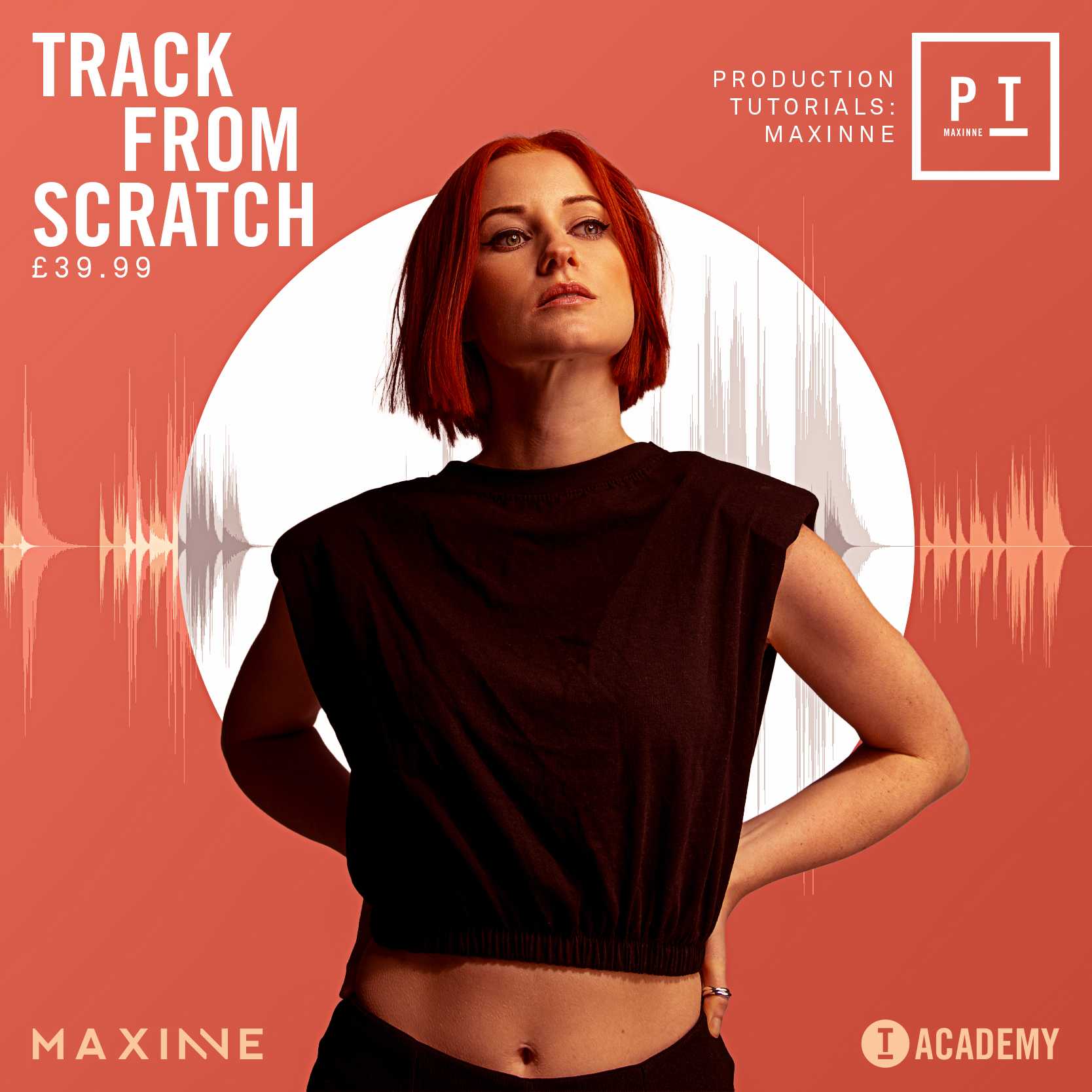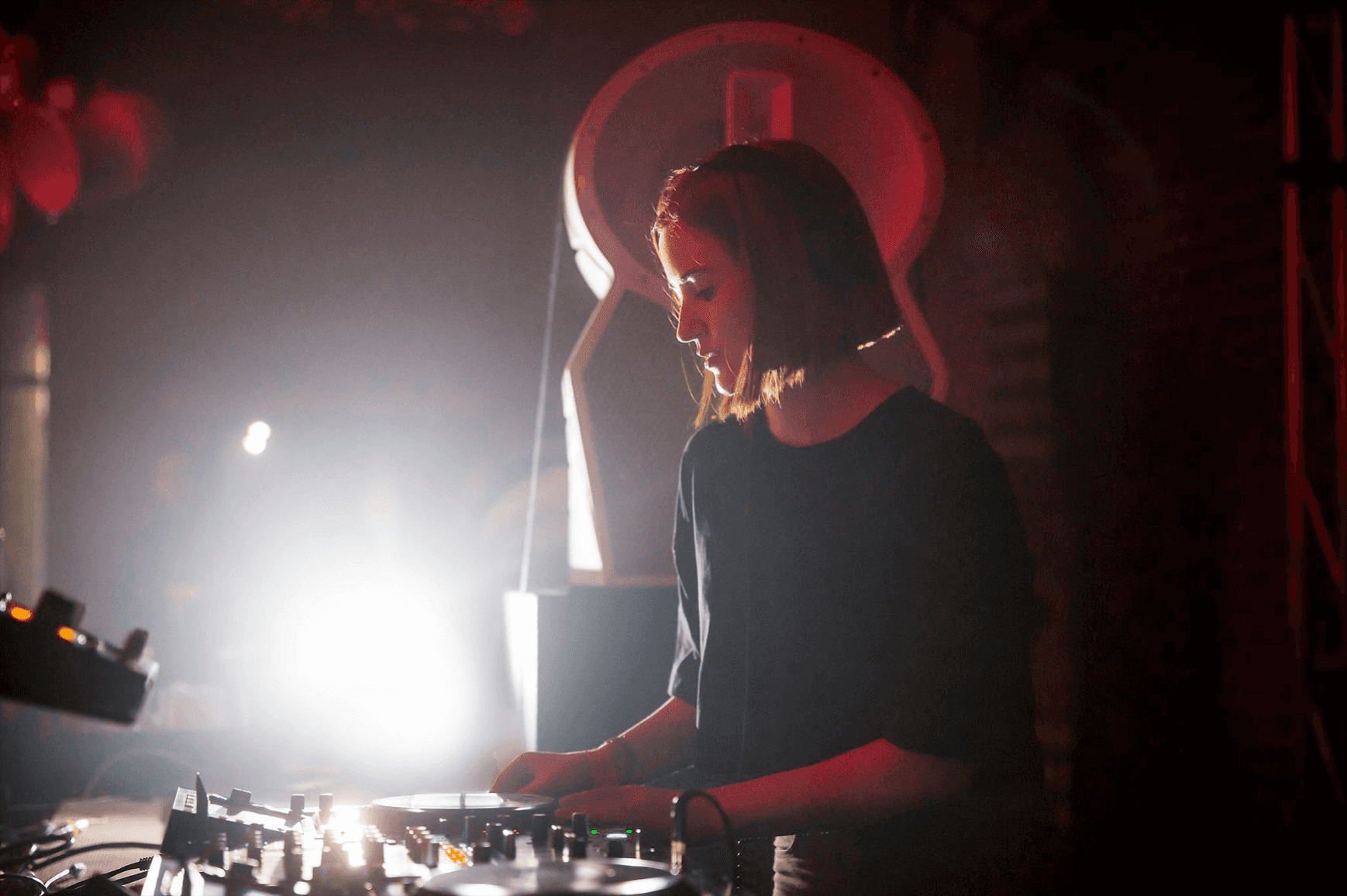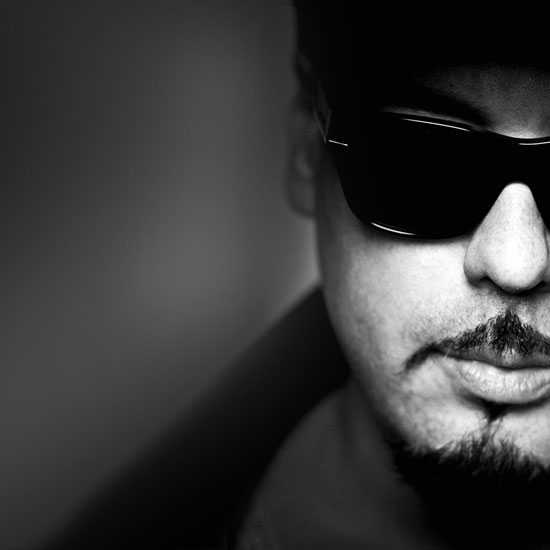has been added to your cart.

Producer Interview: Maxinne
We talk to Maxinne about her ascent and exciting new Toolroom Academy production course, which leans on her industry experience and in-depth production knowledge to teach students ‘How to Build a Track from Scratch’.
Within a few short years of attending Toolroom’s #WeAreListening campaign and live production classes, Tech-House artist Maxinne has become one of the most recognised producers in dance music. An avid goal setter, the release of her single Tell Me Something earlier this year more than trebled her target of reaching one million Spotify streams. We talk to Maxinne about her ascent and exciting new Toolroom Academy production course, which leans on her industry experience and in-depth production knowledge to teach students ‘How to Build a Track from Scratch’.
WORDS: DANNY TURNER
When did you first get involved in music production?
I first started learning production in 2015, about a year after I’d begun DJing. A lot of artists were inspiring me at the time and I was excited by the idea of creating my own sound and identity within the music scene. I’ve always been quite techy – when I was at university I was into video editing and found those skills quite transferrable to music production because there’s lot of transitions involved and effects and you’re building your project from the left side of the screen and working your way across to the arrangement.
Did anyone help you to get a foothold in the industry?
Over the years, I’ve learnt various things from people who were making music within a similar genre to me. I went to a lot of the Toolroom Academy live production classes with the likes of Josh Butler, D. Ramirez, Ben Remember and John from Leftwing:Kody and got to sit down with them and listen to their whole production process. In May 2016, I went to one of Toolroom’s master classes in Brighton where they gave me A&R feedback on my tracks. I continued to send demos and around six months later they signed my first track!
When it comes to producing, what advice would you give to someone who might not be sure where to start?
To begin with I was watching a lot of videos online, so if I could give any advice to people it’s that the internet has so much to learn from. I can only imagine what it was like pre-internet when these tools were not available. Now everything’s a lot more accessible, so if you’re curious and want to get into music production, use online resources and take in as much as you can.
In terms of your sound, did you always have a strong idea on the direction you wanted to take?
I knew I wanted to make music within the House/Tech-House bracket, but didn’t have a specific direction, and for new producers I think that’s completely natural. I’ve always loved music that has strong grooves, a nice energy and a bit of soul. That’s been my sound, but it’s evolved over the years – the first track I put out is quite different to what I release now. When people hear your music it tells you a lot about them and that all becomes part of your brand and identity.

Looking back, what important milestones made you the producer you are today?
My first EP with Knee Deep In Sound was a milestone because it was first the label I listened to when I started getting into house music and I’ve always been inspired by their releases. Another milestone was when my first single got signed to Toolroom because it opened a lot of doors for me, including my residency at Eden Ibiza. Releasing my album this year was another big moment and I set myself an ambitious goal to reach one million streams on Spotify with the track Tell Me Something with Lauren L’aimant, which has now gone on to do three million streams.
Are you one for writing down goals as a motivational tool?
I’ve always been one for writing goals in a notepad and working towards them because I feel that when you do that the goal is more likely to manifest itself. I really didn’t expect Tell Me Something to achieve what it has, but I want to keep on setting myself goals because the possibilities are endless.
How would you advise people on dealing with the inevitable ups and down they’re likely to face embarking on a career in the industry?
You’ll definitely have ups and downs – it happens to everyone, but if you go in knowing that then you’re less likely to be surprised when you get setbacks. You’re going to get noes from labels, but if you’re positive and think of that as being part of the process you can deal with it better. You’ve got to be really persistent and remember that if you haven’t seen results within 6-12 months it’s not wasted time if you’re constantly getting better as a producer. Everyone’s journey’s different, for some it may take several years to get their first release signed, so be patient.
I set myself an ambitious goal to reach one million streams on Spotify with the track Tell Me Something with Lauren L’aimant, which has now gone on to do three million streams.
How would you advise people on dealing with the inevitable ups and down they’re likely to face embarking on a career in the industry?
You’ll definitely have ups and downs – it happens to everyone, but if you go in knowing that then you’re less likely to be surprised when you get setbacks. You’re going to get noes from labels, but if you’re positive and think of that as being part of the process you can deal with it better. You’ve got to be really persistent and remember that if you haven’t seen results within 6-12 months it’s not wasted time if you’re constantly getting better as a producer. Everyone’s journey’s different, for some it may take several years to get their first release signed, so be patient.
What helped you get through those difficult periods?
Something that helped me was to try to spend every day working on music production. Whether you’re in the studio for one hour or eight, if you’re consistently putting the time in then eventually you’ll see the results. Hitting writers block is also part of the process, so don’t let it get to you. If you’re not feeling it, have a day off because when you come back you’re likely to feel refreshed and lay down a load of ideas. Having a good support network around you is also important. If you’re surrounded by negative people it’s going to have a knock-on effect on your mind set.
How has your gear journey evolved over the years and how would you recommend people get going on that front?
I started producing on Logic but after a couple of years switched to Ableton and make all my music on the laptop with a good pair of headphones, speakers and a MIDI keyboard. I recently bought Arturia’s V Collection 8, which has some really nice synths, but I also want to start building up some hardware. That’s not something I’m in a hurry to do because the end result is always the most important thing, but if we have another catch up in a few years’ time I’m sure I’ll have some hardware thrown in there.

Although you’re signed to the Toolroom label, what motivated you to play a role in the Academy itself?
Having built a relationship with Toolroom through their production courses, I’ve become close to the Academy too. They launched a platform called #WeAreListening that incentivises producers to go along to events, network and learn about production. Going to those platforms and taking in all that advice through production classes and interviews with other producers on the scene has really helped me to develop, so it just feels right to get involved.
What can you tell us about your new production course for the Academy?
It’s a pre-recorded online course titled ‘How to Build a Track from Scratch’ and throughout each chapter you’ll see me create a track from absolutely nothing, from the ideas that lie behind my choice of sounds to how I start a track, whether that’s using a kick drum, lead sound or vocal, and all the other important elements like automation and mixing. Basically, it’s my whole strategy for creating a track.
It’s really for anyone who’s looking to add those extra elements to make a track demo-ready.
Can you give us a quick insight into that strategy?
When I first started producing, I’d start from the beginning of the track and build it into an arrangement, but by the time I got to the end I found that so many elements were missing. Because I didn’t choose the right sounds I’d often end up scrapping it, which is such a frustrating part of the process. To save me from that hassle I’ll now build an 8-bar idea, keep that going on a loop and only go on to arrange the track when I’m 100% happy with it.
On the course, we talk about making those right decisions before moving on to the arrangement phase, how to find a catchy vocal hook that could work and my basic mixing down process. There’s also an informal in-depth chat with Toolroom Academy tutor Pete Griffiths discussing my journey and how to approach the music industry, including networking, how to get your demos heard and my whole production thought process. I definitely think there will be something in there for everyone and I’m excited to see how it goes down.
Do students need to be at a fairly advanced level to enrol on the course?
You would probably need to know the basics of working your way around a DAW, but the course is suitable for people who are completely new to production. A lot of new producers know how to create an idea but don’t necessarily know how to finish or see it through, so it’s really for anyone who’s looking to add those extra elements to make a track demo-ready, and I’d like to think that the course manages to simplify things in a way that isn’t super-technical. Even if you’re an experienced producer there’s definitely useful techniques I use that some others might not that will really help them.
What are the top 3 tips that you think people will learn from your course?
- To start with your main hook or melody (vocal/synth/bass) first.
- Sound choices, which are really important to ensure you have an overall good-quality sounding track at the end of the process.
- How to add extra character and emotion/soul to your productions.
Login
X
